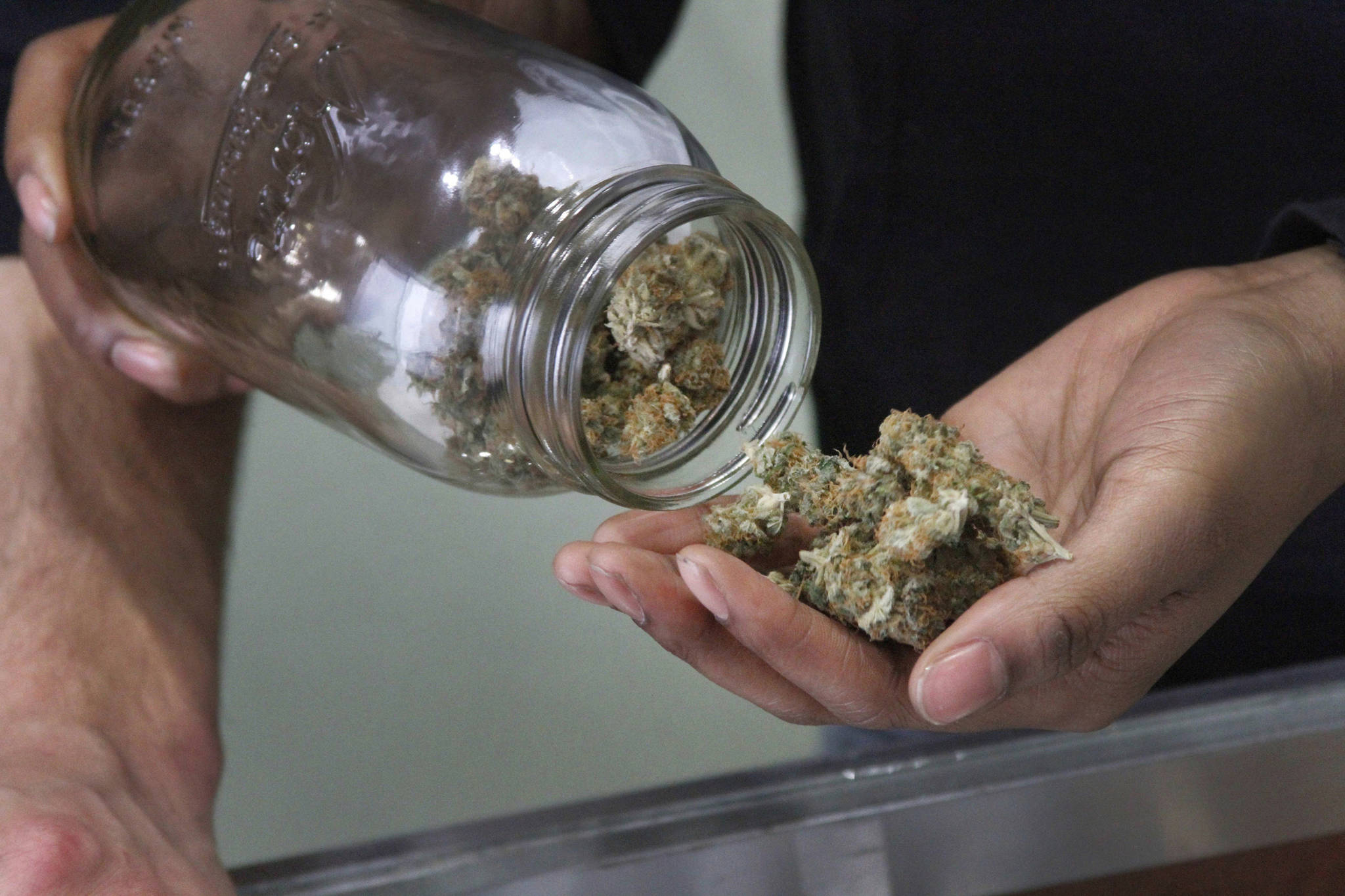The board that regulates Alaska’s legal marijuana industry could be shifting right, with appointments by Republican Gov. Mike Dunleavy of a marijuana critic and a law enforcement officer who would like to revisit onsite use rules.
Dunleavy’s appointments of Vivian Stiver and Lt. Christopher Jaime are subject to legislative confirmation.
Stiver replaces Brandon Emmett, an industry representative on the Marijuana Control Board. Jaime, an Alaska Wildlife Trooper from Soldotna who also has worked as an Alaska State Trooper, replaces Sitka Police Chief Jeff Ankerfelt.
Ankerfelt was appointed by former Gov. Bill Walker but had not yet been confirmed.
[Dunleavy declares ‘war on criminals,’ delves into fiscal plan]
The law establishing the five-member board calls for up to two members who are actively involved in the industry though one of those seats could go to a member of the general public. Nicholas Miller retains an industry seat.
There is also a public health seat, held by Loren Jones, and a rural seat, held by Mark Springer.
Ankerfelt voted with Emmett and Miller last month in approving rules for allowing onsite use of marijuana at authorized stores. Dunleavy spokesman Matt Shuckerow has said the recent decision to replace Ankerfelt was not based on prior policy positions.
[Gov’s crime message resonates, but Juneau lawmakers hesitant about constitutional amendments]
Shuckerow, in an email Wednesday, said it’s no secret that Stiver “holds a certain skepticism for legal marijuana use,” which he said other Alaskans share. He said Dunleavy believes she will help bring a valuable perspective to the board.
Dunleavy’s administration recognizes legal marijuana “is the law of the land, and will do their part to enforce the law, but also want to give concerned Alaskans — as the law intended — a voice in the decision-making process,” Shuckerow wrote.
Stiver was involved in a failed 2017 effort to ban marijuana operations in Fairbanks. The Fairbanks area has become a prominent growing region for the legal industry.
Alaskans voted to legalize so-called recreational use of marijuana in 2014, and Stiver said she can’t change that. But she said she can contribute to efforts to move forward in a responsible way. Education is important, she said.
“There are aspects of legalization that aren’t so good, right? I mean, that just can’t be denied,” she said. “So I want to contribute what I can, the best that I can that people have knowledge, our youth have knowledge, they understand what can happen.”
[Alaska regulators approve rules for onsite marijuana use]
Emmett, who said he is serving on the board through February, when his term expires, called Stiver an “abject prohibitionist” who has fought the industry.
“I don’t think she represents the general public in Alaska and certainly not the majority of the public in Fairbanks,” said Emmett, who is from Fairbanks. He added later: “This isn’t just me throwing stones because I’m unhappy about losing my seat.”
Jaime said he wants to educate himself on issues facing the board. He said respecting the wishes of the people is important but sensible regulations also are needed.
“We already opened the door, now we need to regulate it and go slow,” he said.
He and Stiver expressed concern about onsite use. Jaime said the issue should be revisited if possible. Stiver said she wants to learn more about how the board reached its decision.
The proposed rules for allowing onsite use of marijuana at authorized stores were sent to the Department of Law for further review and must yet be finalized. Once they are, interested businesses would have to apply for a special onsite use endorsement and devise plans that would meet ventilation and other standards and pass muster with the board.
Chris Lindsey, senior legislative counsel with the Marijuana Policy Project, has said Alaska would have the first regulatory framework for onsite use at the state level.
Cary Carrigan, executive director of the Alaska Marijuana Industry Association, said he hopes onsite use moves forward. He said the industry has proven itself to be responsible and answerable to the public.
“Every time something has come up to that needed to be addressed by the industry, we have done so,” he said.
• This is an Associated Press report by Becky Bohrer.

